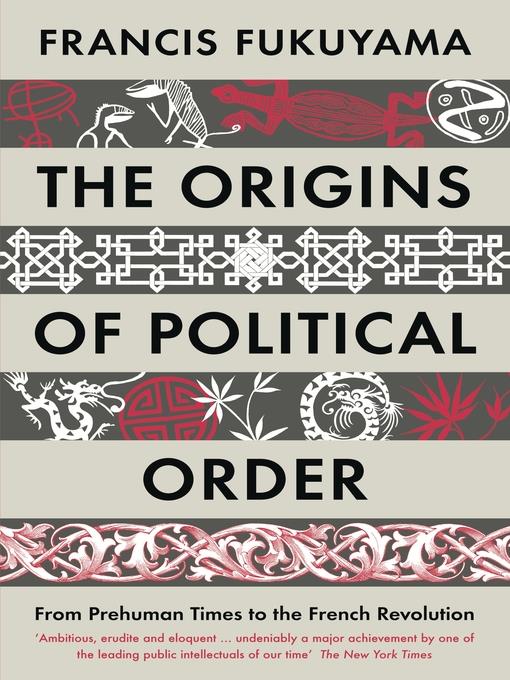
The Origins of Political Order
From Prehuman Times to the French Revolution
کتاب های مرتبط
- اطلاعات
- نقد و بررسی
- دیدگاه کاربران
نقد و بررسی

July 9, 2012
Even the most math-phobic readers might forget their dread after just a few pages of Strogatz’s (The Calculus of Friendship) latest. The author, a Cornell professor of applied mathematics, begins with arithmetic, by way of Sesame Street, then explores algebra, geometry, and, finally, the wonders of calculus—all done cheerfully, with many a wry turn of phrase. From addition and subtraction, with a glimpse into negative numbers and “the black art of borrowing,” it’s a quick step into the hardcore detective work of algebra’s search for the unknown x, with algorithms like the quadratic equation, “the Rodney Dangerfield of algebra” (“it don’t get no respect”). Strogatz rhapsodizes over geometry, which he sees as a marriage of logic and intuition that teaches how to build arguments, step by rigorous step, and geometry’s “loosey-goosey” offshoot, topology. Brisk chapters on prime numbers, basic statistics, and probability are all enlightening without being intimidating. Most impressive is Strogatz’s coverage of calculus, the math used to figure out everything from how fast epidemics spread to the trajectory of a curveball. Readers will appreciate this lighthearted and thoroughly entertaining book. Illus.

Starred review from January 24, 2011
The evolving tension between private and public animates this magisterial history of the state. In his hominids-to-guillotines chronicle of humanity's attempts to build strong, accountable governments that adhere to the rule of law, international relations scholar Fukuyama (The End of History) advances two themes: the effort to create an impersonal state free from family and tribal allegiances, and the struggle—often violent—against wealthy elites who capture the state and block critical reforms. Fukuyama's multifaceted comparative approach grounds politics and government in the demands of biology, geography, war, and economics, and pays appropriately lavish attention to China (he styles the Qin Dynasty of 221 B.C.E. the world's first modern state), India, and the Islamic countries. A neo-Hegelian, he's especially trenchant on the importance of ideology—especially religious beliefs—as an autonomous instigator of social and political change. (He cogently ascribes Europe's distinctively individualistic culture to the medieval Catholic Church's "assault on kinship.") Fukuyama writes a crystalline prose that balances engaging erudition with incisive analysis. As germane to the turmoil in Afghanistan as it is to today's congressional battles, this is that rare work of history with up-to-the-minute relevance.

























دیدگاه کاربران